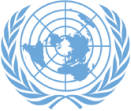Mr. Chair
1. I have the honor to deliver this statement on behalf of the Member States of the Association of Southeast Asian Nations (ASEAN).
2. ASEAN aligns itself with the statement made by the distinguished representative of Uganda on behalf of the Group of 77 and China.
3. At the outset, I would like to extend my sincere congratulations to Ambassador Muhammad Abdul Muhith of Bangladesh on your election as Chairperson of the Second Committee as well as too other members of the Bureau. We are confident that your leadership will guide the Committee toward significant accomplishments.
Mr. Chair
4. ASEAN recognizes that the international community is currently facing multifaceted challenges ranging from armed conflicts to economic downturns that setback global development. Although ASEAN has enjoyed long-lasting peace and security which served as favorable conditions for all Member states, we have also been exposed to a wide array of challenges, including persistent economic and financial difficulties. Issues such as climate change’s impacts, natural disasters, and both traditional and non-traditional security threats continue to pose significant challenges. Despite the region is gradually recovering from various multidimensional disruptions, this recovery remains precarious. In this light, ASEAN is committed to further enhancing connectivity and resilience which is essential to bolster ASEAN's collective efforts in strengthening the ASEAN Community. This approach is vital for effectively seizing opportunities and addressing current and emerging challenges.
5. Amidst the above-mentioned challenges, ASEAN remains committed to promoting regionalism and multilateralism that emphasize the importance of centrality, unity, inclusivity, and mutual benefit as well as to advance cooperation on connectivity and resilience by intensifying collaboration across the three community pillars. This includes promoting infrastructure connectivity, narrowing the development gap, fostering greater economic integration, and encouraging people-to-people exchanges while strengthening ASEAN's relationships with external partners, all of which are necessary to maintain the relevance and centrality of ASEAN within the evolving regional architecture.
6. In this regard, ASEAN undertakes efforts to develop the ASEAN Connectivity Strategic Plan, a crucial component of the upcoming ASEAN Community Vision 2045. This plan will capitalize on the successes and lessons from the Master Plan on ASEAN Connectivity 2025 and integrate with other regional connectivity initiatives in the region.
7. ASEAN continues its efforts in enhancing economic connectivity, despite global economic fragmentation, heightened geopolitical tensions, and stricter trade regulations, ASEAN aims to bolster regional economic integration through enhanced connectivity. ASEAN's economy is projected to grow steadily at 4.6% in 2024, and we recognize the vital role of Foreign Direct Investment (FDI) in strengthening our economic resilience.
8. On rural development, poverty alleviation, and social protection including health, ASEAN continues to invest public funds in social protection, explores blended finance with the private sector, and considers megatrends such as demographic shifts, the impact of climate change, and rapid technological advances, that impact social protection systems so that no one would be left behind.
9. To address food security challenges, ASEAN supports initiatives that strengthen food systems and nutrition, particularly during crises. We prioritize reducing food waste, promoting sustainable agriculture, and encouraging collaboration among international organizations, the private sector, civil society, and economic institutions to achieve our shared goals of ensuring food security and nutrition in the region.
10. To promote digital inclusion and connectivity, ASEAN is committed to fostering trusted digital communities. We have endorsed the Guide on Artificial Intelligence (AI) Governance and Ethics, which outlines our approach to responsible AI development and use. Additionally, we support the Framework on Logistics for Digital Economy Supply Chain for Rural Area, which aims to enhance rural connectivity and infrastructure through ICT solutions in rural areas.
11. To enhance disaster resilience, ASEAN is committed to strengthening the alignment of national and regional disaster management frameworks, establishing comprehensive and collaborative governance structures, and improving disaster management capabilities.
12. To achieve a more resilient and sustainable energy future, facilitate cross-border electricity trade, and support the region’s long-term energy vision, ASEAN is committed to decisively accelerating the progress of establishing the ASEAN Power Grid (APG) and realizing it by 2045.
13. To address climate change, ASEAN reaffirms its commitment to achieving UNFCCC and the Paris Agreement’s goals, particularly by upholding the principle of equity and common but differentiated responsibilities and respective capabilities (CBDR-RC), in the light of different national circumstances. The ASEAN Working Group on Climate Change (AWGCC) Action Plan also supports the region’s efforts toward sustainable development and environmental sustainability.
14. ASEAN prioritizes inclusive, equitable, quality education, digital learning, relevant curricula content, qualified educators, and gender equality. We promote lifelong learning opportunities for all and encourage collaboration across sectors to implement programs that support early childhood, primary, secondary, technical, and vocational education and training, green skills, higher education, and digital transformation.
Mr. Chair
15. We are strongly committed to accelerating progress towards the SDGs and enhancing SDGs localization, including through promoting rural development and collaboration, while continuously empowering our youth, women, persons with disabilities, elderly persons, MSMEs, and migrant workers. To this end, ASEAN is committed to strengthening the alignment between our ASEAN Community Vision 2025 and the 2030 Agenda. We are also working to narrow development gaps and build a resilient economic architecture in collaboration with our partners. In this connection, ASEAN believes that the outcomes of the Summit of the Future will further reinvigorate the multilateralism system, effective global governance, and development cooperation to strengthen the implementation of the SDGs, including international financial architecture reform, technology, digitalization, climate finance, as well as the participation of developing countries in the economic and development decision-making process, improved mobilization of capital from multilateral development banks to address multidimensional challenges for the future generation.
Mr. Chair
16. To conclude, I would like to reiterate ASEAN's unwavering commitment to solid collaboration with our esteemed Second Committee, development partners, and the United Nations. Together, we aim to overcome global challenges and promote sustainable development through multilateral cooperation, striving for better lives for our people and prosperity for all.
Thank You.

